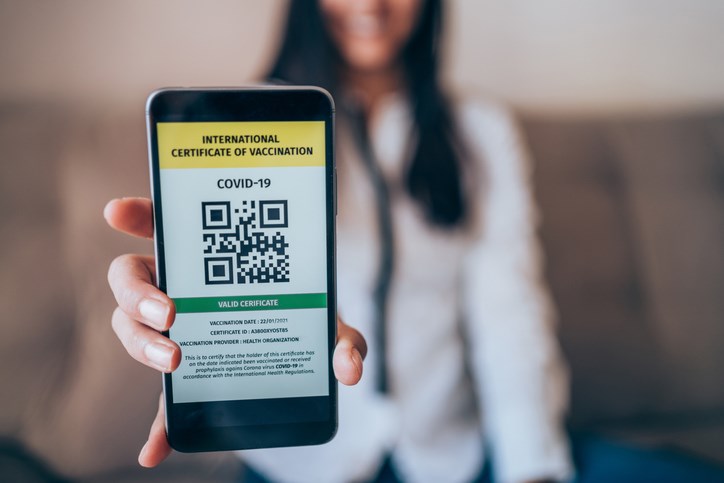At the time, the concept was especially popular for large gatherings, and only a tiny majority of residents (52%) favoured its appearance in the workplace.
In September, support for relying on these proof-of-vaccination certificates in offices climbed to 63% across the country. In this month’s survey, just over two-thirds of Canadians (67%) think it would be a “very good” or “good” idea to use vaccine passports to allow people to return to their usual workplace.
Some Canadians are already showing their vaccine passport in order to carry on with their labours, especially those who come into close contact with others. The notion of a workplace where everybody has been inoculated against COVID-19 is particularly well received by Canadians aged 55 and over (77%), but is also endorsed by majorities of those aged 35 to 54 (66%) and those aged 18 to 34 (59%).
Canadian workplaces have already undergone significant modifications as a result of the COVID-19 pandemic. A safe return to the office would be invaluable to the industries that rely on foot visitors to keep stores open, as well as for providers of coffee, snacks and meals. At this stage, most employees in Canada would not meet the calls for a vaccine passport with dismay, even if they are anxious to cling to the home office.
From a political standpoint, the concept of a vaccine passport for workplaces is not unpalatable for Canadians who supported any one of the four main parties that ran candidates in more than one province during this year’s election. Support for this proposed regulation is highest among Liberal Party supporters (81%), dropping slightly among those who cast ballots for candidates representing the New Democratic Party (NDP) (73%), the Conservative Party (64%) and the Green Party (58%).
The glaring exception, in what has become a profoundly predictable trait of Canadian public opinion research, is the People’s Party. Only 19% of Canadians who voted for this party would welcome a vaccine passport for offices.
Canadians remain firmly in favour of the use of the vaccine passport for other activities. Seven in 10 Canadians (70%) endorse the concept as a precondition of allowing people to go to live concerts as spectators (up two points since September), to go to live sporting events as spectators (up four points) and to visit a gym or fitness facility (up three points). In addition, 69% (up three points) support the use of these documents for people going to the theatre or cinema. As expected, People’s Party voters dislike each one of these plans.
Support is also high among Canadians for requiring vaccine passports in order to travel to other countries (74%, up one point), to travel to other Canadian provinces (70%, up two points) and to travel inside the same province (65%, up three points).
Our own behaviour did not go through a massive shift since September. The vaccination rates are higher every week, and some Canadians are already getting their booster shots. Still, a significant proportion of the country’s residents are not ready to lay down their guard.
We continue to see 70% of Canadians (down one point) acknowledging that they wear a mask every time they go out. Women (74%) and Canadians aged 55 and over (81%) remain the biggest promoters of this course of action, but there are no extreme differences among regions.
At a time when almost two-thirds of Canadians believe that the worst of the pandemic is behind us, we are entering a decidedly different holiday season. Significantly more destinations, stores and venues are readily available for our business than 12 months ago. The vaccine passport, from its inception, was seen by most Canadians as a small but necessary nuisance. As the months have gone by, Canadians have become less skeptical about its use.
Mario Canseco is president of Research Co.
Results are based on an online study conducted from November 8 to November 10, 2021, among 1,000 adults in Canada. The data has been statistically weighted according to Canadian census figures for age, gender and region. The margin of error, which measures sample variability, is plus or minus 3.1 percentage points, 19 times out of 20.




